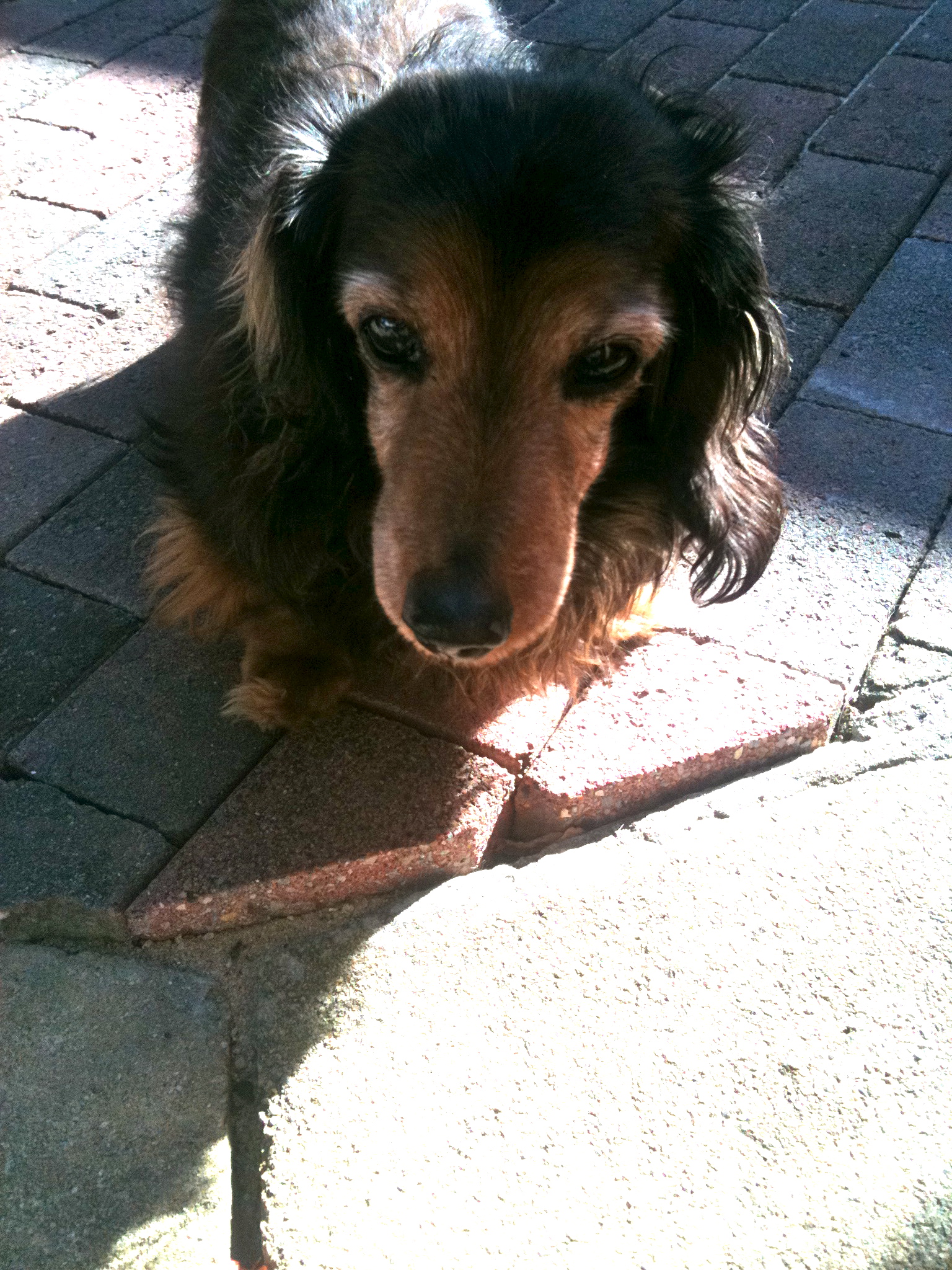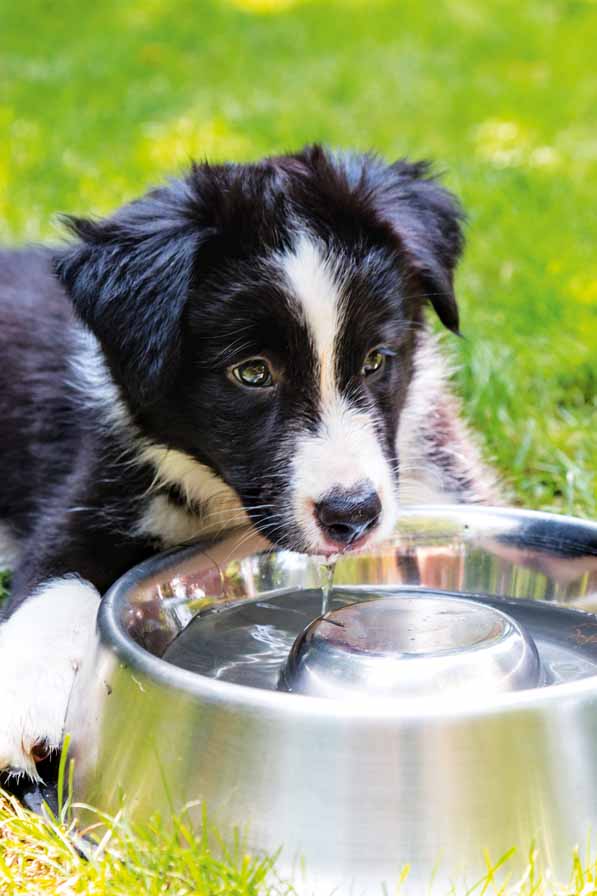
Canine cognitive dysfunction, otherwise known as dementia in dogs, is sadly a fact of life for many ageing pooches. Tim Falk investigates the early signs of the disease and how it can be managed.
After bringing us many years of love, joy and devoted companionship, our dogs inevitably start to slow down a little and show their age. The passing of time is a fact of life, and one that can start to show its effects on our dogs far too soon for our liking.
Hearing loss and decreased mobility are the signs of ageing you would expect any dog to show, but if your four-legged friend starts showing signs of confusion, disorientation or changes in behaviour, he could be suffering from a condition known as Canine Cognitive Dysfunction (CCD).
Similar to Alzheimer’s disease in people, CCD, often called doggy dementia, is the name given to a number of behavioural changes seen in older pets.
What is CCD?
“CCD is a degenerative neurological condition seen in dogs which is similar to dementia in humans. It results in a gradual, progressive loss of brain function,” says Dr Alan Bolton, senior veterinarian at The Lost Dogs’ Home Frank Samways Veterinary Clinic.
In dogs with CCD, the brain undergoes a series of physical and chemical changes that result in a decline in the dog’s mental faculties.
Sadly, it’s also a fairly common condition, occurring in approximately 12-14 per cent of older dogs aged more than 10 years old. “It is a very common problem in clinical practice, although is a condition that has only recently been properly acknowledged,” Dr Bolton explains. “It affects all breeds of dogs; however, it is perhaps more common in smaller breeds due to the fact that, on the whole, they tend to live longer.”
Signs and symptoms
The signs and symptoms of CCD vary in severity. Often, one of the first signs of the problem is a loss of learnt behaviours, such as housetraining, however there may also be changes to the dog’s character.
“For instance, a dog may become more aggressive or their relationship with another animal in the household may change — dogs who have always gotten along may start to fight, etc,” Dr Bolton says. “Dogs with CCD will often become more anxious as well; some owners report that their dog won’t settle at night or will start whining or barking.
“Finally, CCD dogs can often look lost and confused, or be found staring vacantly at a wall or immobile object.”
If you think your dog may be suffering from CCD, you should have him checked out by your veterinarian. There are other conditions that mimic the symptoms of CCD and can be treated, and your vet will be able to advise you accordingly.
Treatment
Sadly, there is no cure for CCD; however, there are ways of managing and potentially slowing down the development of the disease.
“The two major factors are prescription drugs, which can help with brain function and reduce anxiety, and behavioural work. This involves re-training your dog using positive reinforcement methods, keeping him stimulated and keeping a regular routine,” Dr Bolton says.
Your dog should always be given plenty of opportunities for mental stimulation with regular exercise, games and training. Diet may also help slow the progression of the disease and should be discussed with your veterinarian.
There are also steps you can take at home to help your dog cope with the disease.
• In order to prevent confusion, try not to change or rearrange furniture
• Leave wide pathways free of clutter for your dog to move around the house
• Try to stick to a regular routine of feeding and walking
• Don’t push your dog too hard when introducing him to new people or animals
• Most importantly, remember to have patience.
If you think your beloved pet might be suffering from CCD, head to your vet to get the problem diagnosed and work out the best treatment option for your pooch. With careful management and plenty of TLC, you can make sure your dog sees out his final years in the best possible fashion.
Canela’s battle
When Sia Anthopoulos’ beloved Dachshund, Canela, reached 16 years of age, she started to show symptoms of dementia. “She would bark at around 8pm every night because she had lost her way around the backyard,” Sia says. “She would also casually walk off a platform in our backyard; lucky she never hurt herself.”
“Her movements slowed down a lot. One of my dogs is a very active Pomeranian. When he’d jump around her, she wasn’t able to move quick enough to get out of his way; so she’d just get trampled on until he went away. Also, she wouldn’t greet us like she used to and she would spend a lot of time sleeping,” Sia explains.
In order to best manage her pooch’s deteriorating condition, Sia set about doggy-proofing her home. “We would ensure she couldn’t fall from high places in our backyard by barricading certain areas. We would also ensure that she was tucked away in her bed before nightfall so she didn’t lose her way in the backyard overnight,” she says.
Sadly, Canela passed away recently at the ripe old age of 18 — quite a long innings for a Dachshund. Thanks to Sia’s efforts, Canela’s final years were as comfortable as possible. “Canela was very placid and quiet. She absolutely loved getting attention from us, though. She was completely devoted to our family; she was my best friend,” Sia says.
Keep an eye out
Some of the behavioural changes commonly associated with CCD include:
• Confusion and disorientation; your dog may become lost or even trapped in familiar places around the home and backyard, or may show a decreased ability to recognise familiar people
• Failure to respond to familiar commands
• Wall staring
• Changes in sleeping patterns
• Learned behaviours being forgotten, like housetraining
• Repetitive wandering or pacing
• Irritability and aggression
• Persistent barking, especially at night
• Disinterest in food
• Frequent trembling or shaking.
If your four-legged friend is showing any of these signs, head to your vet for a check up.







